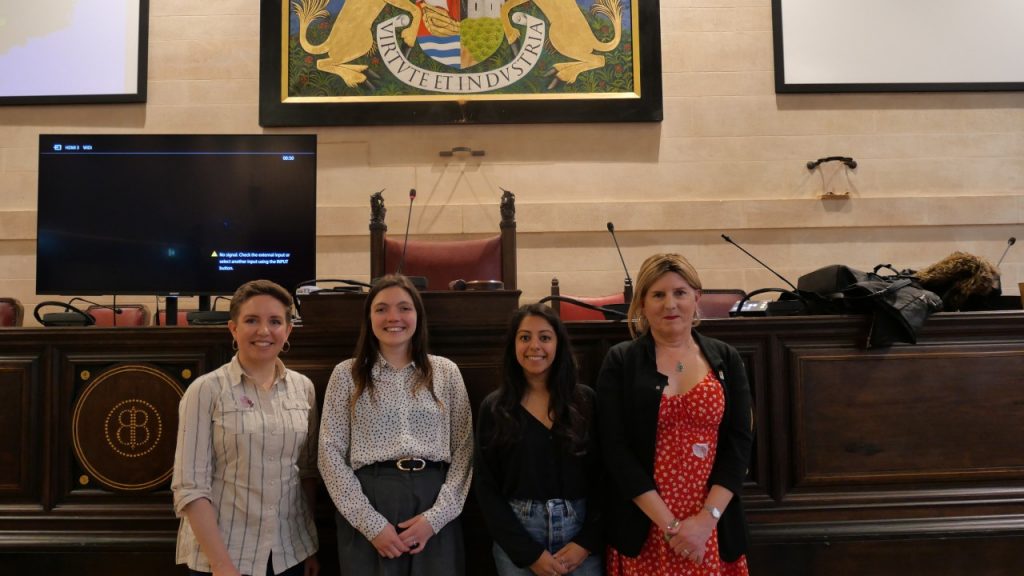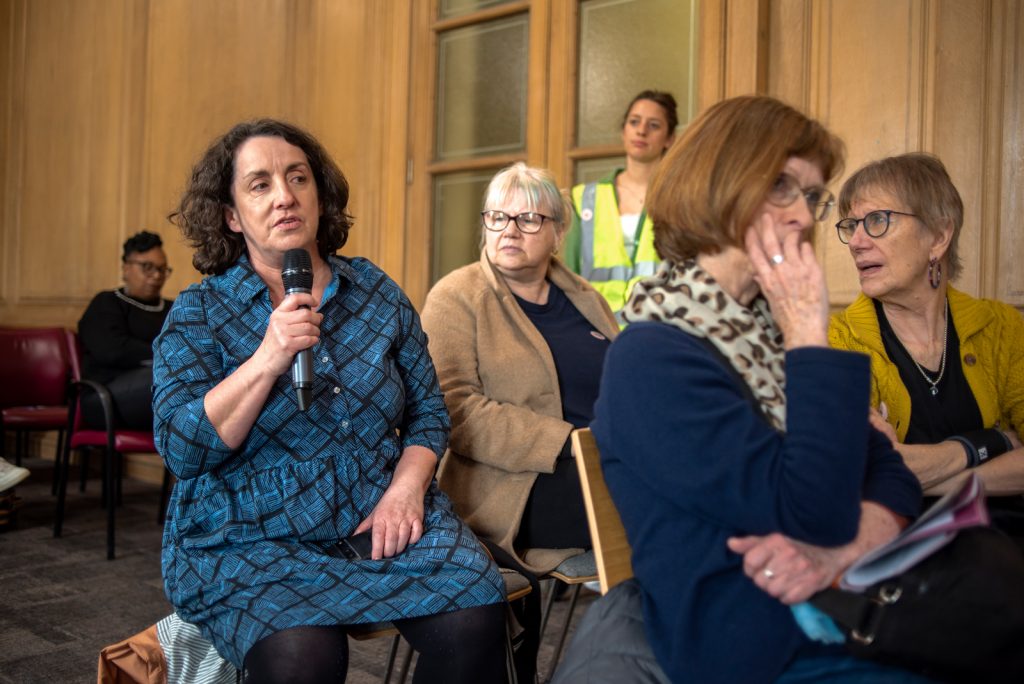

By Alice Hulme, Bristol Women’s Voice Trustee
Improving representation, accessibility, and reliability for innovation and progress.
Bristol Women’s Voice celebrated International Women’s Day on Saturday 8 March 2025 at City Hall, Bristol, with our annual flagship event. One of the key discussions was a Women in STEM panel, chaired by Alice Hulme (Bristol Women’s Voice Trustee & Client Engagement Director at Rise Technical).
The panel featured:
- Cathy Coldrey – Associate Director, GIS, AECO
- Dr. Neha Chandarana – Senior Lecturer, Bio-based & Sustainable Composites
- Kaz Self – Labour City Councillor, Chartered Engineer, ex-Rolls Royce
- Carla Denyer – Co-Leader, Green Party, MP for Bristol Central, ex-Renewable Energy Engineer
The discussion explored lived experiences, workplace barriers, and practical solutions for increasing diversity in STEM. The panel highlighted that policy is needed to open doors, but workplace culture determines whether women stay.
Key Takeaways:
- Policy is needed to get women through the door, culture ensures women stay.
- Soft skills matter – Recruitment should look beyond technical ability to tap into wider talent pools.
- Mentorship & role models – Reverse mentoring and leadership representation help retain women in STEM.
- Targeted initiatives – Programs like STEM Ambassadors & Future Brunels must engage lower-income communities for true diversity.
- Green skills & retraining – Transitioning engineering expertise from high-carbon to low-carbon industries is vital.
- Early intervention is crucial – Schools, businesses, and government must collaborate for long-term change.
The Reality of Women in STEM
Only 24% of STEM roles in the UK are held by women, dropping to 16% in Tech/Engineering and 3% for Black women. Representation in leadership is even lower. Yet, STEM careers are high-growth, financially rewarding, and essential for innovation—meaning women’s voices must shape these fields.
Cathy Coldrey shared an internal AECOM poll where women cited gender bias, pay gaps, and being taken seriously as key challenges. Dr. Neha Chandarana added that early in her career, her faculty had more men named John or Steve than female academics—a stark example of gender imbalance. Although this has improved across gender representation, Dr. Neha Chandarana is still the only women of colour in her department.
Kaz Self championed Reverse Mentoring, where junior employees mentor senior staff to foster understanding. Carla Denyer steered the discussion toward policy solutions, including investment in green skills training and the potential of a Universal Basic Income to enable career shifts into STEM.
Audience Insights & Final Thoughts
A key audience question asked how STEM careers could better support women. The panel emphasised flexible working policies and stronger retention strategies. One attendee shared their experience of transitioning into STEM, highlighting that soft skills are often overlooked yet highly transferable.
At the end of the discussion, we highlighted initiatives available including the society “Future Brunels” that inspires young people throughout their time at secondary school. (Ironically, its name fails to recognise the contribution of Sarah Guppy, who was the female engineer that was a key contributor to Brunel’s Clifton Suspension Bridge.)
The session concluded with one final question:
“What advice would you give your younger self?”
✔ Pick your battles – work will always be there.
✔ Enjoy the journey.
✔ Don’t let imposter syndrome hold you back—take up space.
✔ Always negotiate your starting salary!

